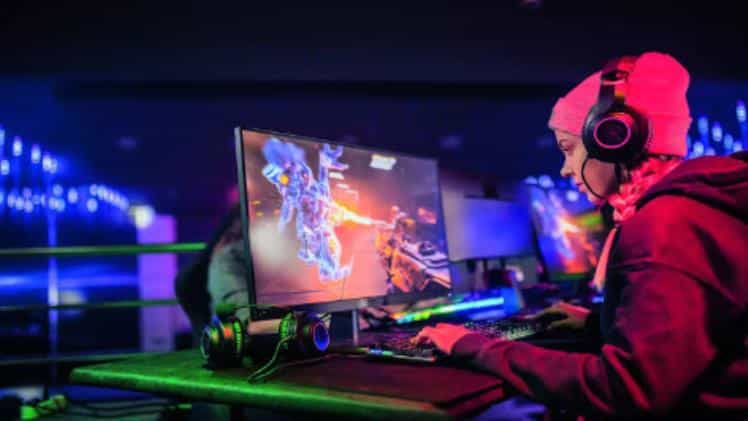Building Friendships and Communities Through Online Gaming

In today’s digital age, online gaming has evolved far beyond mere entertainment. For millions around the world, it has become a vital avenue for forging friendships, fostering communities, and enhancing social well-being.
The Rise of Social Connection in Gaming
According to a global 2021 survey, 84% of gamers agreed that video games helped them connect with others who shared similar interests, and 80% said games like casino helped them meet new people. In the United States in early 2025, 78% of gamers reported that playing games introduced them to new friends. This significant percentage underscores how gaming offers a powerful social gateway to friendship.
Meanwhile, 72% of gamers in the U.S. reported playing with others—either online or in person—a sharp increase from 65% in 2020. And 66% played with friends specifically (online or in-person), with 21% gaming with their spouse or partner.
Why Gaming Fosters Connections
Multiple factors make online gaming an ideal ground for friendship:
- Anonymity and Ease of Openness
Virtual environments allow many to communicate more freely. Around 40% of gamers feel more comfortable discussing serious or sensitive topics online than with friends or family offline. - High Likelihood of Meeting Friends Online
One study of over 900 gamers found that about 75% had a friend they met online through gaming—and 43%eventually met those friends in person. - Real-Time Chat and Communication Tools
A PubNub survey revealed that 67% of gamers have formed some type of relationship—be it friendship or romance—through gaming chat. Moreover, 36% found a lifelong friend, 20% maintained friendships for over five years, and 3% lasted more than two decades. Even 8% found a marriage or partnership through gaming chat. - Support Networks in Times of Need
In certain communities—especially among young men facing isolation or low real-life support—individuals with more depressive symptoms were about 40% more likely to form and maintain ties within online gaming environments. - Shared Experiences Fuel Bonds
Collaborative or competitive gameplay fosters emotional connection through teamwork, shared victories, and overcoming challenges together.
Real-Life Stories: Digital Friends Become Real Friends
- A notable story involves two gamers who met in Among Us in 2020 and spent over 1,000 hours gaming together during COVID-19 lockdowns. Though they had never met physically, their digital bond proved strong—57% of survey participants in that story had online-only friends they never met in real life, and 73% considered these friendships meaningful.
- On Reddit, one user shared:
“I met my husband gaming. … We played an MMO … a few years later … we decided to marry.” - Another recounted:
“One friendship has stood out… he lost his job… I offered him a place to stay … moved in … positive change.” - Yet another reflection:
“Online friendships are just as real, valid, and important as ‘real life’ friendships… COVID… forged relationships that will hopefully outlast this pandemic.”
These stories illustrate how digital bonds foster genuine emotional connections, support, and even life-changing relationships.
Beyond Friends: Communities and Shared Identity
Online gaming doesn’t just foster one-on-one friendships—it builds broader communities:
- Guilds and esports clans, especially in MMOs like World of Warcraft, promote sustained cooperation, shared goals, and group identity. Members often play together consistently, forming a strong sense of camaraderie.
- Competitive gaming scenes—from League of Legends to Dota 2 and CS:GO—spawn vast communities. Fans congregate in forums, social media groups, and live streams to discuss strategies, celebrate victories, and foster unity.
- Platforms like Twitch and Casino House have become virtual “third places”—informal social spaces where viewers and streamers form parasocial bonds through real-time chat and streams.
Challenges and Considerations
No community is without its challenges:
- Harassment and toxicity remain prevalent in some gaming spaces, with serious issues faced by Black gamer’s online and women in gaming communities.
- While gaming can aid social skills, excessive gaming can have negative impacts—hindering real-world interactions or empathy in some cases.
Still, many communities are actively working to improve inclusion, moderation, and safety—striving for positive, supportive environments.
Conclusion
Online gaming has truly transformed into a rich, social ecosystem—one that crescendos beyond screen and console. With a remarkable majority of gamers forging real connections (75–84%), many forming lifelong bonds and even romantic relationships, it’s clear that friendships and communities within gaming are powerful and meaningful.
While challenges like harassment exist, the benefits—friendship, emotional support, belonging, and collaboration—highlight gaming as a modern social force that transcends geography, identity, and circumstance.



